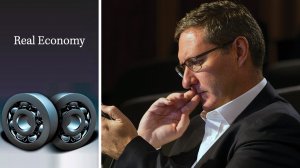For attentive followers of developments in South Africa’s not-always-transparent energy sector, a section in Jackkie Cilliers’ new book, Fate of the Nation: Three Scenarios for South Africa’s Future, will be of definite interest. The overall aim of the book is not to explore the energy sector in any great depth, but rather to offer high-, middle- and low-road scenarios for the country’s social and economic performance until 2034 – scenarios labelled ‘Mandela Magic’, ‘Bafana Bafana’ and ‘Nation Divided’ respectively.
Nevertheless, Cilliers is alive to the importance of energy not only as it relates to the country’s economic and environmental outlook, but also how it influences political outcomes and how political dynamics are likely to shape decision-making in the electricity subsector in particular. Nowhere are these political dynamics expected to be more pronounced than in the area of nuclear energy.
The book notes that even South Africa’s first Integrated Resource Plan, or IRP 2010, acknowledged that the country could, in theory, meet its energy requirements and decarbonise in the absence of nuclear. Nevertheless, the document (which remains the country’s official electricity generation plan, despite an attempt at a nuclear-light update in 2013 and the release of the draft Base Case 2016, which delays the introduction of new nuclear to from 2023 to 2037), allocated 9 600 MW to new nuclear capacity – equivalent to nearly 13% of the 2030 electricity generation mix.
Despite strong opposition, a lack of trust in the process and the legal setback of April, when the Western Cape High Court set aside a determination allowing for the procurement of new nuclear plants, the current administration appears resolute on pressing ahead. The book argues that South Africa is also determinedly swimming against a global current, which points to the likelihood that nuclear will continue to struggle, owing to its falling cost competiveness relative to renewables.
With the aid of the International Futures modelling software, which is housed by the University of Denver, in the US, Cilliers arrives at the following conclusion: “Nuclear plants are simply too expensive in this day and age for South Africa’s budget, particularly at a time when the price for renewables is coming down year on year.” Therefore, under his Mandela Magic scenario, all of South Africa’s future electricity requirements are met through renewables and gas. By comparison, the Nation Divided scenario factors in the building of all six of the reactors envisaged in the IRP 2010. This despite a far smaller economy, at R5 505billion by 2034, relative to the one anticipated under Mandela Magic, at R7 593-billion.
The net effect of pressing ahead with nuclear, Cilliers warns, will be to raise the capital intensity of the South African economy at a time when the most important challenge is to create employment. “It is almost impossible to see how South Africa would benefit from nuclear or from investing in an industry that is globally in decline.”
EMAIL THIS ARTICLE SAVE THIS ARTICLE ARTICLE ENQUIRY
To subscribe email subscriptions@creamermedia.co.za or click here
To advertise email advertising@creamermedia.co.za or click here











